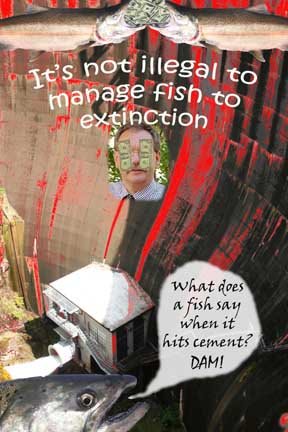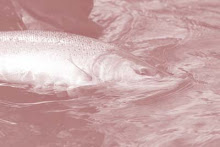Farm bill full of pet causes backed by individual lawmakers
WASHINGTON (AP) — A good farm bill wouldn't be complete without a little pork.
Individual lawmakers, mostly senators, slipped several dozen "earmarks," or pet causes, into the $290 billion bill that have at best tentative connections to the tilling of the land.
There's tax breaks for horse owners, water for Nevada desert lakes, aid for the Pacific Coast salmon fishery industry and a crackdown on puppy trafficking.
Rep. Jeff Flake, R-Ariz., a leading opponent of earmarks, complained that some had been "airdropped in" at the last minute. "If you dig into them, you might find something untoward. You might not, but the fact is we don't have time to do that."
Republicans went after Democratic-backed provisions, such as one backed by Sen. Patrick Leahy, D-Vt., that allows the federal government to sell portions of the Green Mountain National Forest to a ski resort in the state. Leahy's office countered that the provision, backed by the state and the Forest Service, would save the Forest Service management costs by selling land that has long been used for skiing.
Another controversy was over a provision allowing state and local governments and non-profits to issue $500 million in tax-credit bonds to buy forest land for conservation purposes. The White House, which opposes the bill because of its cost and benefits for wealthy farmers, said that provision would authorize the purchase of 400,000 acres of land in Montana from a single owner, the Plum Creek Timber Co.
But Sen. Max Baucus, D-Mont., said it wasn't an earmark because it was a model for conservation efforts across the country and there are no geographic limitations in the legislation.
Rep. Mike Thompson, D-Calif., said $170 million in relief for the salmon crisis on the West Coast was "desperately needed by the communities and families who rely on salmon fishing." The Department of Agriculture argued that the funds were not needed because West Coast salmon fishermen received $60 million in federal aid two years ago.
House Republicans on Wednesday tried to strip the Leahy, Baucus and Thompson items from the House-Senate compromise bill, but fell short on a mainly party-line 230-193 vote.
The department also took aim at $175 million in funds championed by Senate Majority Leader Harry Reid, D-Nev., to provide water for desert lakes in his state.
The farm bill, one of the last major pieces of legislation with a chance of becoming law this year, was a natural magnet for lawmakers trying to advance legislation that might not get considered as individual bills. Often, accepting earmarks is a way for party leaders to reward the rank-and-file and secure their votes on the overall bill; on the farm bill it was more a case of the powerful — Reid, Senate Republican leader Mitch McConnell, Finance Committee Chairman Baucus and Judiciary Committee Chairman Leahy — using their influence to help their states or constituents.
Among other special provisions:
_ McConnell included a tax break for horse owners that would benefit horse farms in his state of Kentucky. His office asserted that the provision, which ensures that all race horses are depreciated over three years for tax purposes, regardless of when the horses start training, did not qualify as an earmark because it would affect tens of thousands of taxpayers in nearly every state. The Joint Committee on Taxation estimates this would cost $126 million over 10 years.
_ Senators from Pennsylvania, Delaware and Maryland succeeded in including $382 million for the Chesapeake Bay Watershed Conservation Program.
_ Baucus also got $1 million for a national sheep and goat industry improvement center.
_ The bill authorizes $10 million a year for five years for a program backed by Rep. Ruben Hinojosa, D-Texas, that helps people in poor, rural areas find housing.
_ It also authorizes funds for a drought mitigation center at the University of Nebraska, water systems for rural and native villages in Alaska and a congressional hunger center.
The Humane Society of the United States said it was supporting the farm bill because it has a provision, inserted by Senate Democratic Whip Sen. Richard Durbin, D-Ill., to curb the import of puppies for commercial sale from foreign puppy mills. The bill also strengthens the federal animal fighting law.
House Agriculture Committee Chairman Collin Peterson, D-Minn., made the point that the farm bill had no earmarks when it was first passed by the House, and that special projects came mainly from Senate requests.
"There was a lot worse stuff in that bill that we took out," he said.
The bill is H.R. 2419.



1 comment:
That money could have gone a long way to support more fish, thus helping the fishermen.
Post a Comment